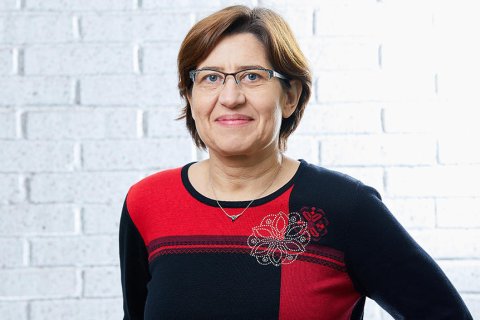Valérie Masson-Delmotte on the role of academics in the climate emergency
On August 31, the Utrecht Young Academy organised an online panel discussion on facing the climate emergency in academia. Panel members included prof. Valérie Masson-Delmotte, prof. Wilco Hazeleger, dr. Heleen Mees, drs. Lonneke Roelofs, and mr. Tim Bleeker. During the panel discussion, the panel members and audience discussed the impact of climate change and its influence on the academic paths of the next generation scientists.

Valérie Masson-Delmotte is co-chair of the IPCC and Research Director at the French Alternative Energies and Atomic Energy Commission and received an honorary doctorate from Utrecht on August 31. She opened the panel discussion with a statement regarding three key aspects of the role academics have in the climate emergency.
"Worldwide, universities, early career scientists and students are at the forefront of understanding climate change challenges and exploring risks and solutions. In my view, there is a specific question about the role of academics in the climate change context. Of course, our role is to produce, communicate and share knowledge.
Universities train teachers and universities train students. To address unprecedented challenges, we need new skills and we need new mindsets.
"The second dimension of the role of academics is to produce science that can inform decision-making. This implicates the co-design of research questions together with communities, with business sectors, with cities around us, with citizens, so that our science is relevant to inform decisions.
The third thing is about the role of education at all levels. Universities train teachers and universities train students. To address unprecedented challenges, we need new skills and new mindsets.
The necessary training is not just theoretical. It is also training by practice and training by projects. This is key to implementing these new skills and these new mindsets on how to act towards the multiple dimensions of sustainability and how to understand the complexity of risks and solutions. Because all of them have tradeoffs and co-benefits with respect to the multiple dimensions of sustainability."
Educate decision-makers
Nowadays, we have more knowledge than ever on climate change. But although we gain more and more knowledge, we observe less action. During the panel discussion, Valérie explained where this is going wrong.
"Within my IPCC role, I've been exposed to discussions with CEOs of large companies, the deputies in parliaments, ministers and heads of governments. I can tell you, if you are on a one-on-one discussion and ask a couple of key questions about climate change to understand their basic knowledge, it is often close to zero. Although there are exceptions, this means that people who are decision-makers usually have very limited background on these issues."
I think universities need to deploy major efforts to support early career researchers who have been most affected by the pandemic.
Development of academic careers
Valérie also elaborated on how academic careers will develop in the upcoming 10 to 20 years. Will we stay in our ivory tower, or become more diverse? "First of all, I am really concerned about the effects of the current pandemic on the career path of young researchers, especially those that have a family burden. I think universities need to deploy major efforts to support early career researchers who have been most affected by the pandemic.
What I observe around me is a major push to change practices from early career researchers. They push for reducing emissions associated with research practices, travel, work, lab equipment, fieldwork and international conferences. They deploy new methods to have more inclusive participation during meetings.
So, in my view, it is already changing at the moment, thanks to the new mindsets of early career scientists who want to avoid the cognitive dissonance that has been shown in the past, over decades, by my generation and other generations of scientists on these matters. But they need support and I think this calls for discussions within the academic world, space for these discussions where you can share views and define the best possible strategies within each university."
Finally, Valérie explained what helped her most when sharing knowledge broadly. "What helped me most is to work with teenagers. If you are able to explain your science to a curious 15-year-old person, you can explain it to the prime minister of your country. For that, you need to practice. You need to do it once and see what had failed, what was too jargony, what they could understand nothing of, because a teenager has a critical mind and will tell you very quickly if they understand nothing. It is the most helpful thing I have ever done to be able to share knowledge."

